PWHL Storylines: Boston-Montréal Semifinal Series
Three storylines from a short but thrilling PWHL Boston-Montréal semifinal series.
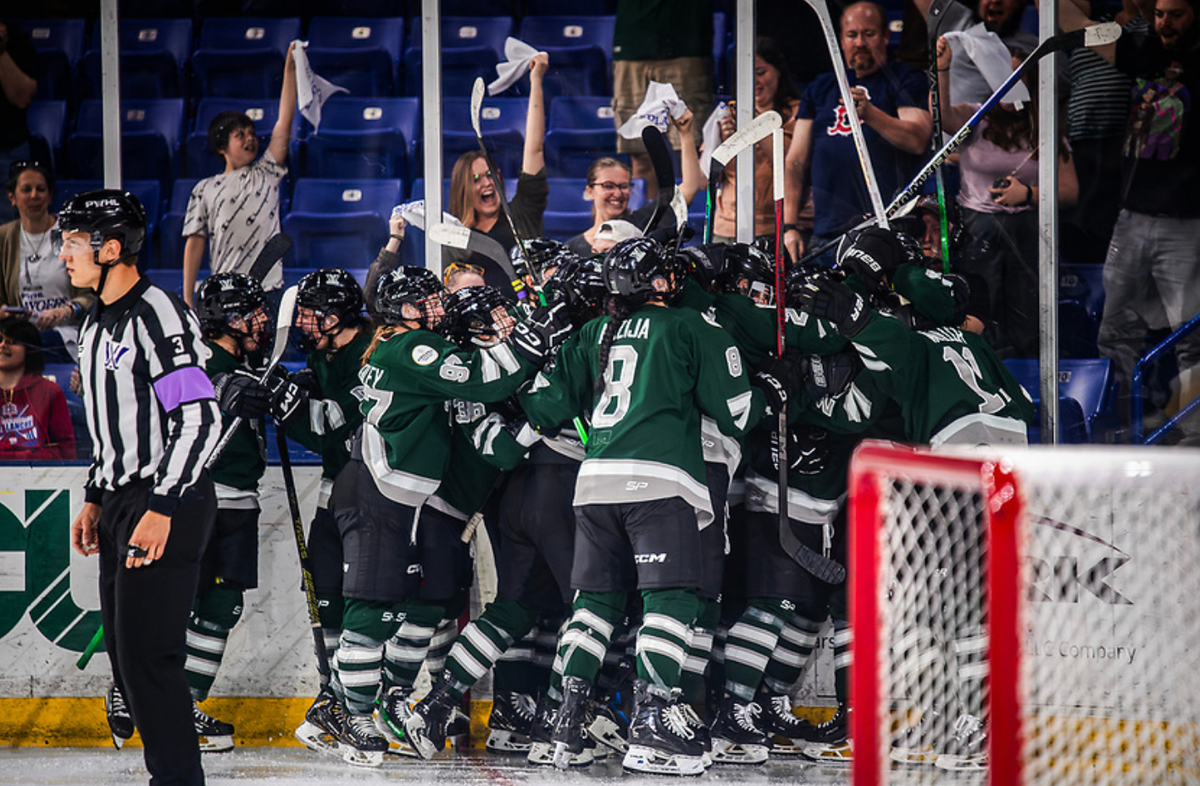
PWHL Boston finished a semifinal sweep of PWHL Montréal on Tuesday night, so it’s time to look back at some of the major storylines from the series.
Series Summary
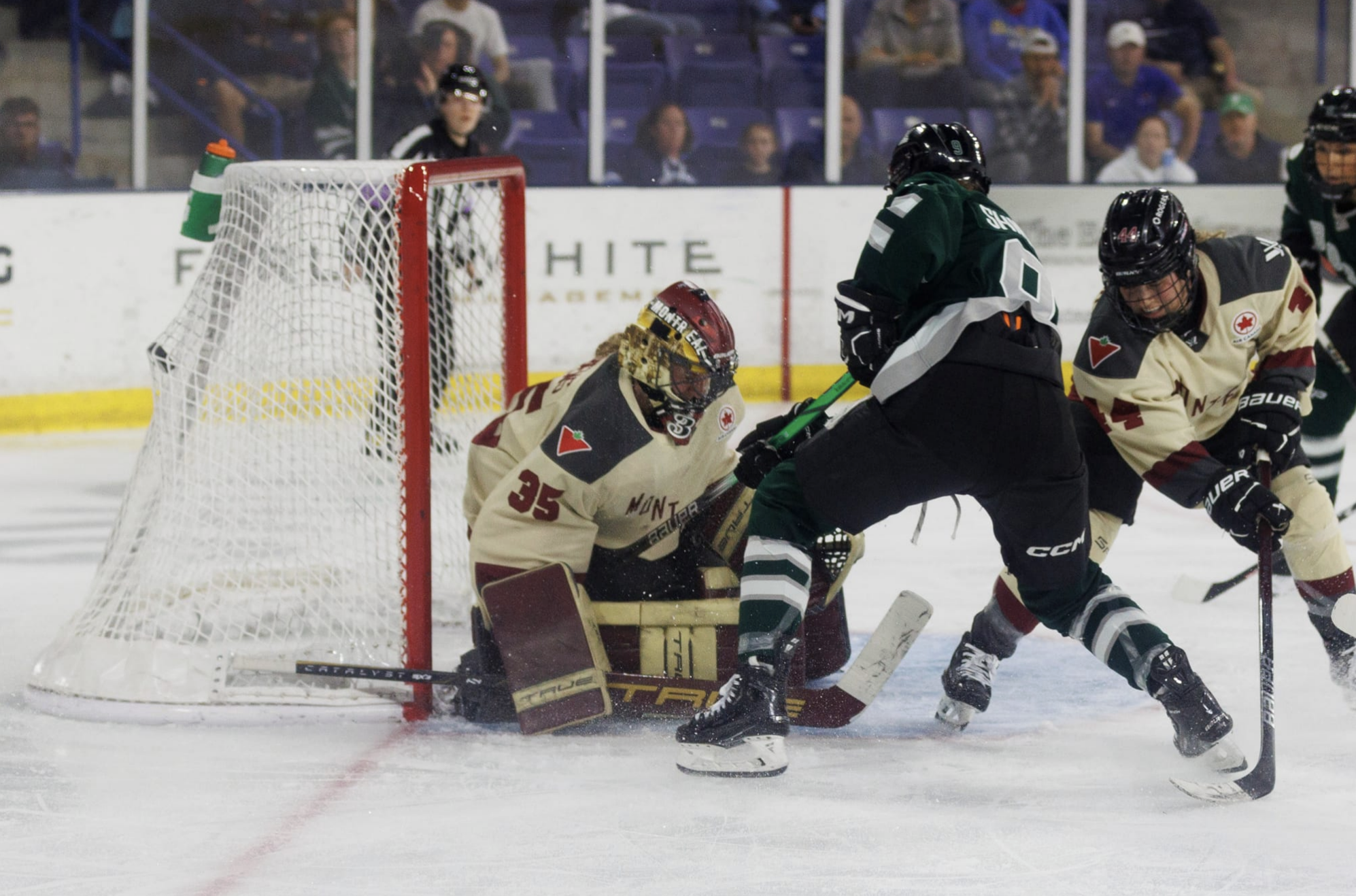
Before diving into storylines, here’s a quick summary of what happened. Despite only playing three games, a little over 12 full periods of hockey were played. Montréal had a lot more push to start Games 1 and 3, but Boston managed to weather their storms before rallying to win within one overtime. Meanwhile, Montréal was also in the driver's seat for chunks of Game 2 in regulation, but Boston's strong start was enough to keep them in it before their willingness to play their depth eventually won the game in triple overtime.
While meeting with the media after Game 3, Montréal head coach Kori Cheverie gave her assessment of how her team played throughout the series.
“Out of the how many periods did we play, 12?,” said Cheverie. “I would say we probably outplayed them for ten, but it wasn’t quite enough.”
During her availability, Boston head coach Courtney Kessel was told about this assessment and asked for her own.
“I mean, good for her,” said Kessel. “Here we are, we’re heading onto the championship, so I think that’s all that matters.”
Full recaps of each game are linked here:
History Made
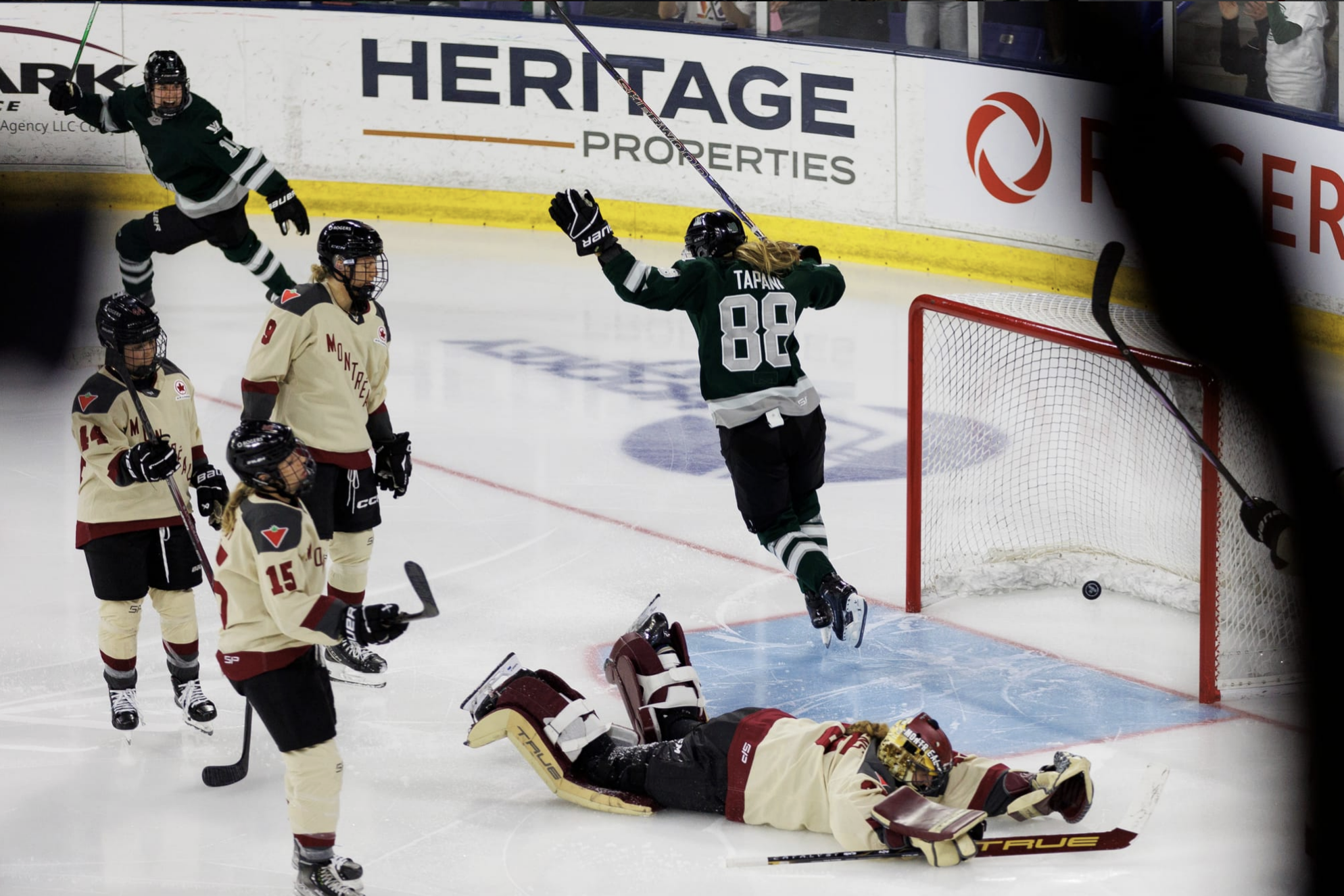
Making history has been a storyline throughout the inaugural PWHL season, and this series made a lot of it. Some of it was standard inaugural series fare, such as the first playoff sweep and Boston being the first team to advance to the Walter Cup Final. They also set the record for the longest game, which is not surprising given this is the first time they’ve been able to play more than 65 minutes. However, they made this one more fun by setting it in Game 1 before smashing it in Game 2. Game 1 clocked in at 74:25, while Game 2 ran a whopping 111:44, which is a record that may stand awhile.
Aerin Frankel also set and rebroke the record for saves made by a goaltender in any PWHL game (regular season or playoffs). In Game 1, she made an eye-popping 53 saves, and then somehow only made three more in Game 2 despite playing an extra 37 minutes.
The most fun bit of history made this series is not exclusive to the PWHL, or even women’s hockey. After combing through the seasons, this was the first best-of-five or best-of-seven series sweep in any North American major professional hockey league where every game went to overtime. The CWHL, PHF, PWHL, and NHL were all investigated. This is the first time women’s hockey has seen a best-of-five semifinal, while the NHL has had a lot of playoff format changes, but since 1987, all playoff series have been best-of-seven. For context on how wild this stat is, from 1987 to the beginning of the 2024 second round, there have been 548 series, 77 of which were sweeps. It’s much harder to calculate the total best-of-fives and best-of-seven series from the previous 76 years due to incomplete public record preservation from the league’s early days, but you get the idea. This felt like one of the closest series sweeps ever in professional hockey, and the stats back that up.
Bench Management
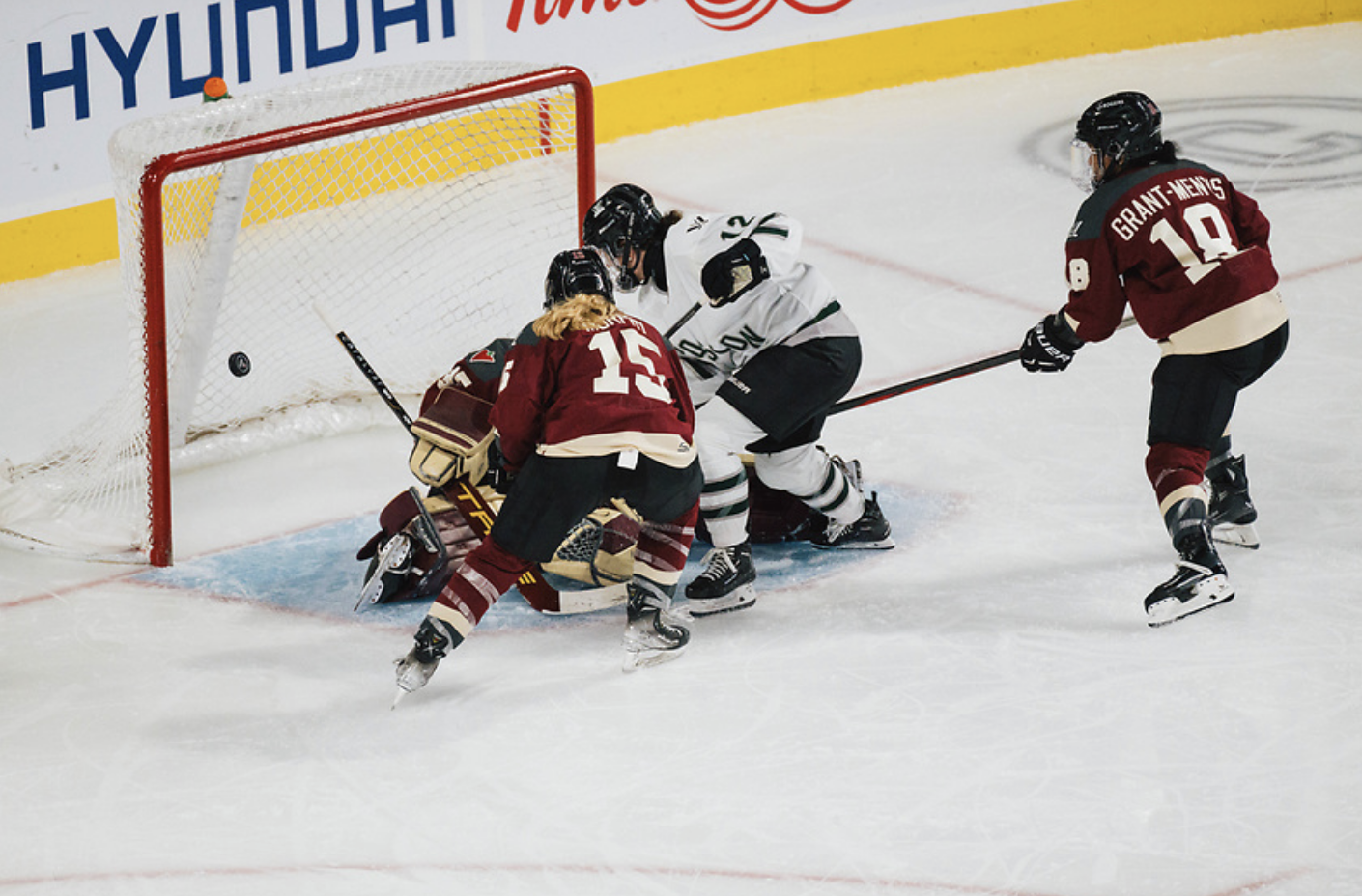
Perhaps the hottest topic during the series was the difference in how Cheverie and Kessel managed their benches. After Game 3, both coaches were asked about it. Kessel began by saying that she didn’t get to play her fourth line as much as she wanted to in Game 3 since they were trailing. Otherwise, she said it was about feel after giving them the chance to grow in the regular season so they were ready for these big moments.
“Honestly, it’s just feel,” said Kessel. “I think when you head into overtime, you have four lines…the thought was ok, we’ve got some fresh legs, we’re definitely going to use them, but I think it’s important that you prepare all season. I think all season our fourth line had some minutes to develop and to grow and to kind of get a feel for the speed and the pace of the game, and I think it’s important because you just never know. We went into Montréal without Ratty and Gabel, TG, and if you don’t give them [the fourth line] any opportunity to grow and to learn, when those things happen at the peak of your season, you’re not going to do well. So I think it’s important that they all get an opportunity.”
Meanwhile, a still-emotional Cheverie didn’t have as much to say.
“We primarily went with three lines and then spotted in the fourth,” said Cheverie. “That’s a really big question. Trying to win games, trying to make sure that we’re putting people in positions where, if they’re supposed to score they score and if they’re supposed to defend they defend. That’s all I’m gonna say on that.”
To get a clearer picture of what happened, here’s a look at how Kessel used her fourth line and bottom three defenders in the regular season versus playoffs.
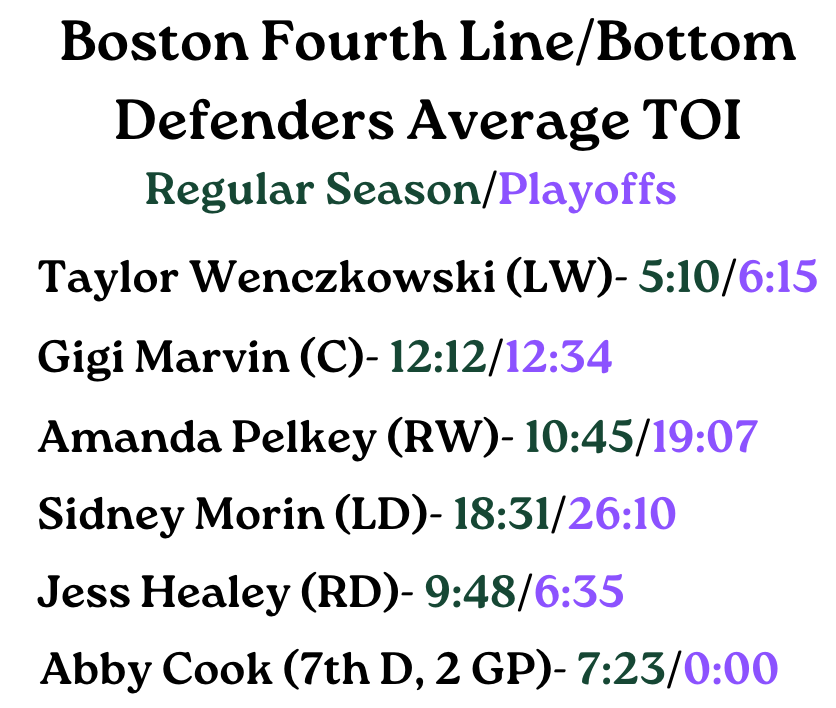
Now, here’s how Cheverie used hers.
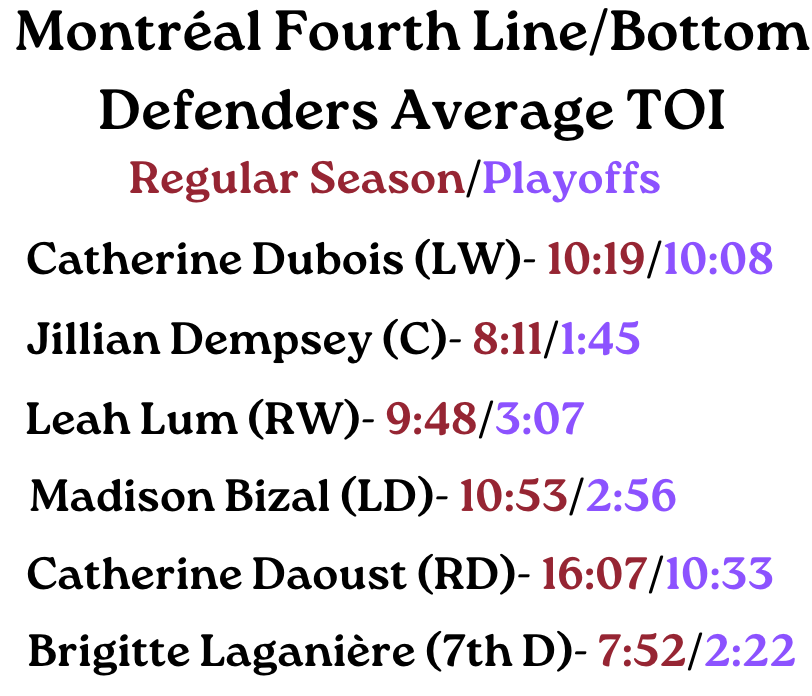
Five of Montréal’s six depth players saw massive drops in their ice time in the playoffs despite every game going to overtime. Meanwhile, three of Boston’s six saw big jumps and two saw a drop.
While benches naturally shorten in close games, there is no reason for anyone's ice time to crater when playing upwards of 111-minute games. Yet, the problem was at its worst for Montréal in the 3OT marathon, which saw almost all of these players stapled to the bench after a first-period shift where they let up a goal. Meanwhile, Erin Ambrose played 61:33 and four other skaters played over 50 minutes. On the other side, Boston’s fourth line ended the game, and Hilary Knight topped all Boston skaters with 49:23 while four others were over 40 minutes.
Cheverie’s refusal to use her depth even close to how she did in the regular season is inexplicable and a big part of what cost them the series. In any league, the stars have a way of neutralizing each other in playoff series, just like they did in this one. So, if you don’t trust your depth players, you won’t go far.
Frankel Shines Bright
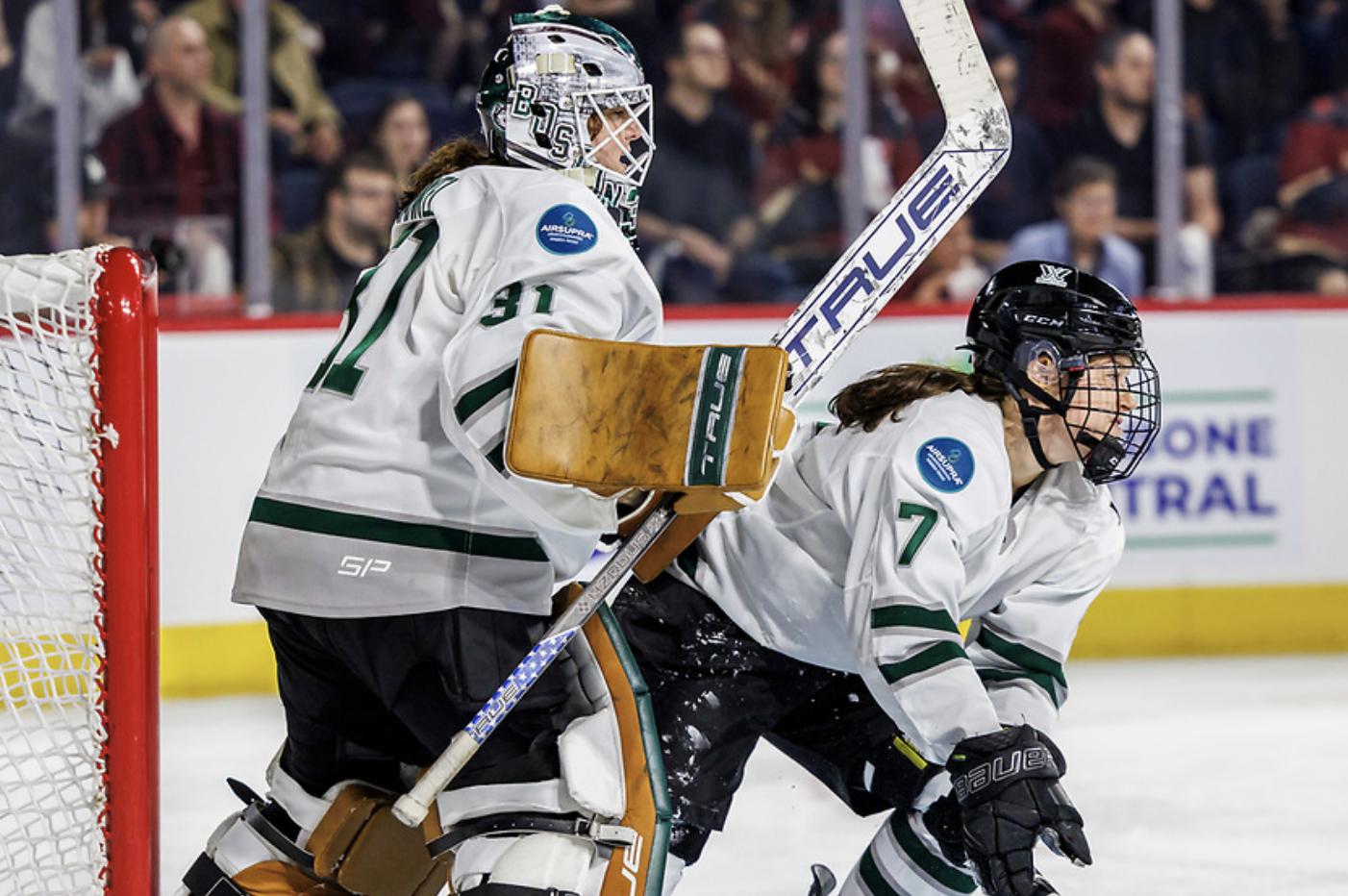
While the games were closely contested overall, Boston would not swept Montréal without Frankel playing out of her mind. She made a ridiculous 141 saves over the three games, including 109 through the first two. However, the quality of many of those saves is just as impressive as the volume.
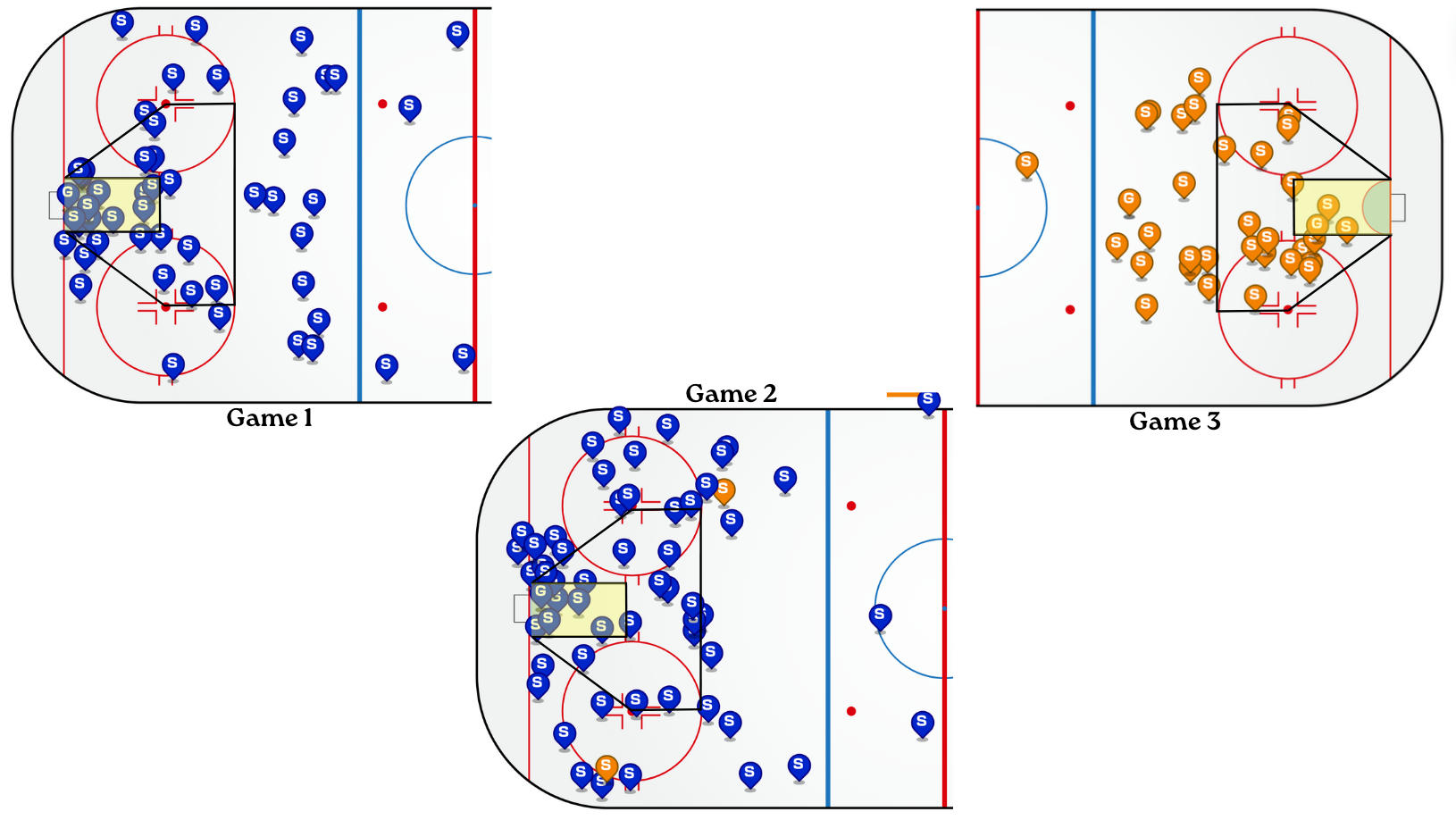
In total, 67 of the shots she faced (46%) were from inside the house (the black outlined area, considered the danger area), and many others were from just outside it. Further, 17 of those 67 were from inside the slot (the yellow outlined area, considered the high-danger area). She made numerous game-saving stops throughout the series, and without her, Boston may have been the swept team.
All told, it was a shame this series ended in a sweep because you couldn’t have asked for a more closely contested series. It would’ve been terrifying for fans (and exhausting for everyone if they kept this overtime streak alive), but five games of this would’ve been a treat. However, in a league this competitive, this will surely not be the last one decided by just a few bounces.


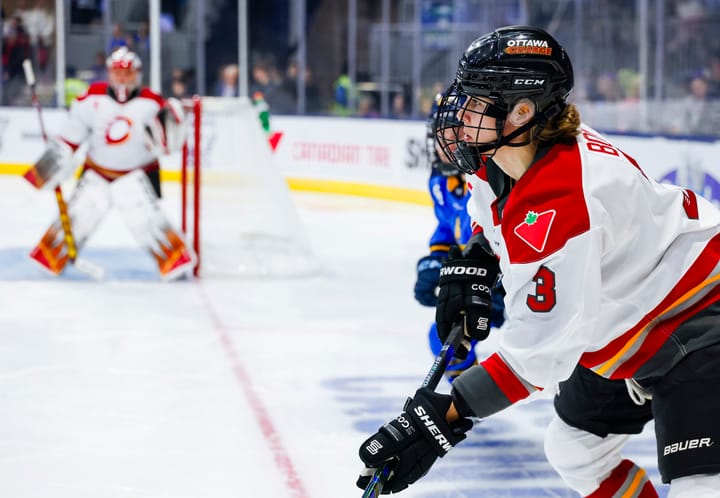
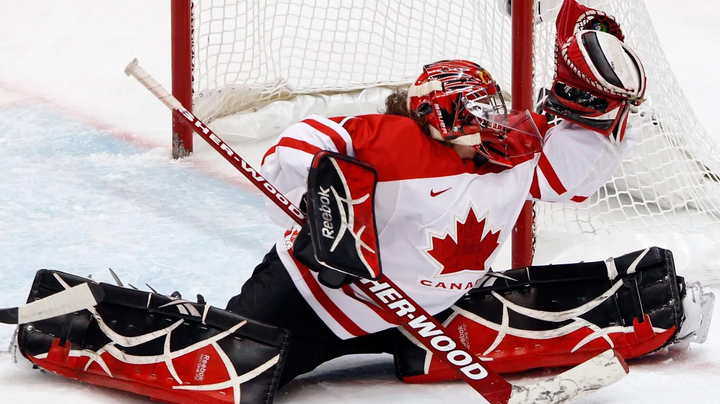
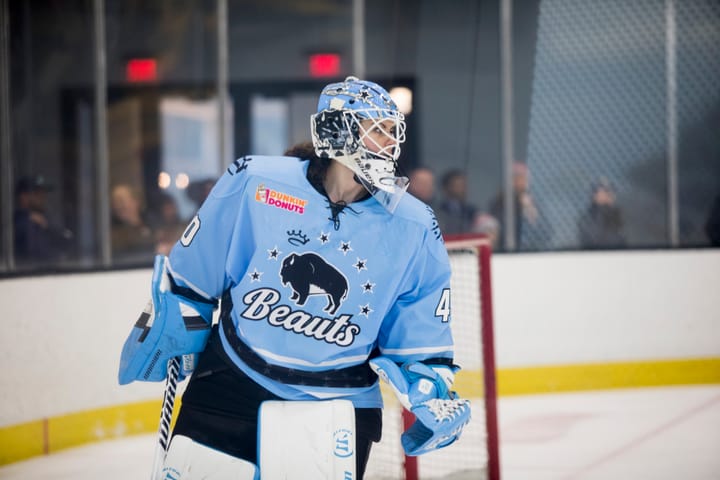
Comments ()